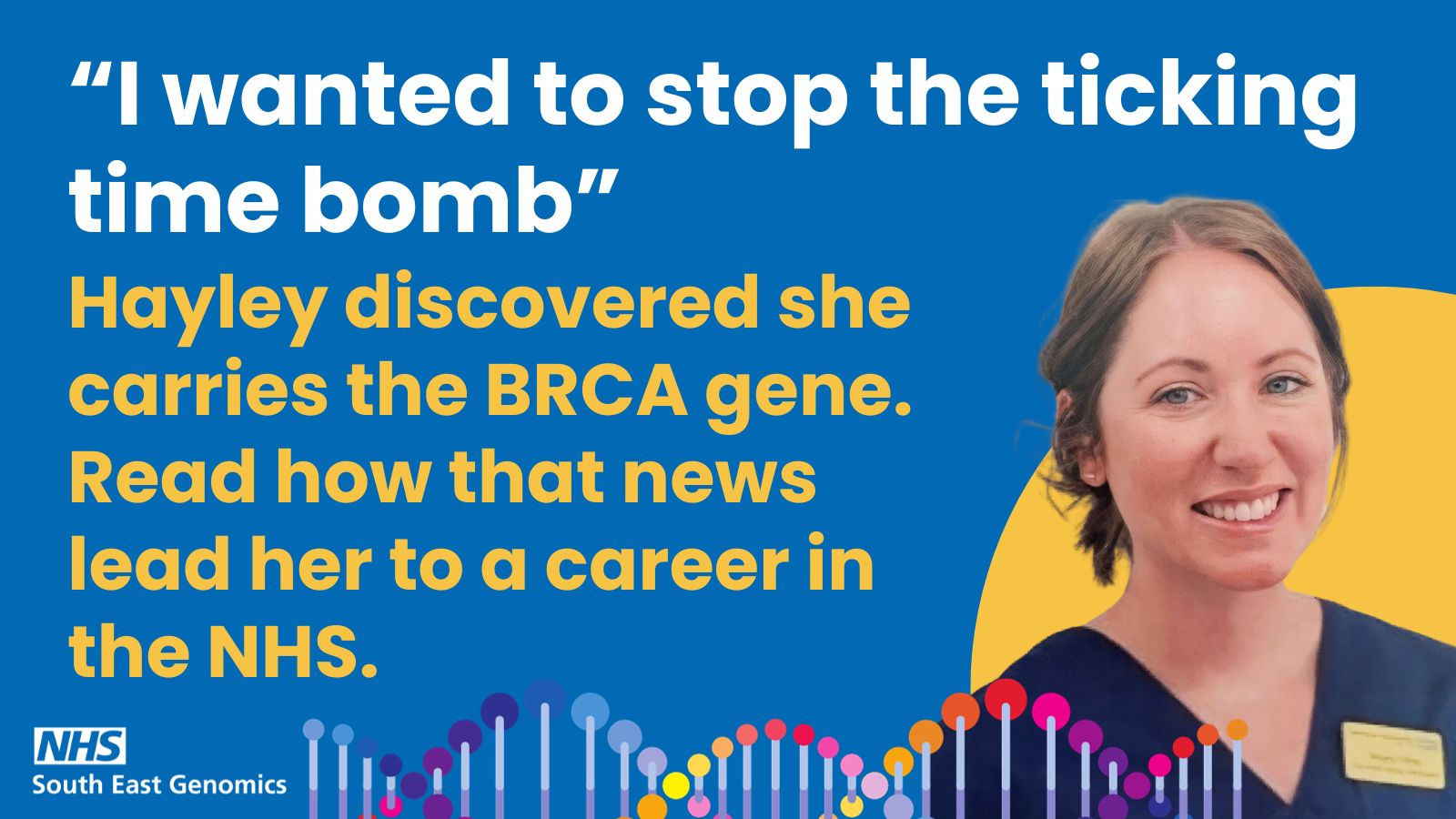
Breast cancer has been a big feature in Hayley’s family. Her Mum died from the illness when Hayley was 14 and both her Auntie’s were also diagnosed. As a result, Hayley, both her sisters and her cousin have all undergone genetic testing for the BRCA gene which is proven to increase your risk of developing cancer.
Hayley, and her sister Bethany, tested positive. Their older sister was negative for the BRCA gene.
“I got tested in my early 20s and decided straight away to have a double mastectomy to reduce my risk of developing breast cancer. Some people said I was too young, but it was the best decision I ever made. I wanted it done when I was young and could cope. I wanted to stop that ticking timebomb.”
Hayley is now in her thirties, and is married with two children. Last year she decided to have her Fallopian tubes removed to further reduce her risk. Although she’s not yet ready to have her ovaries taken out, she knows that at some point she will probably go down that route too.
“When I was thinking about the salpingectomy, I didn’t know where to start but luckily I am a member of a support group called BRCA Kent and they helped me with everything I needed to know. So many of the women there had already been through it so they could share all the little things that no one else tells you.”
Hayley was 14 when her Mum died. She’d spent a lot of time in the hospital watching her Mum go through treatment. That time has had a big impact on her and she decided to pursue a career in the NHS as a result. After 18 years working in oncology as a therapeutic radiographer at Maidstone Hospital, she has seen many patients who remind her of her Mum.
“It’s always there in the back of my mind, but I know I am doing everything I can to reduce my risk and I’ve been able to support other people too who are going through the same thing including my younger sister.”
Genetic testing is supported by the South East NHS Genomic Medicine Service which covers Kent, Medway, Sussex, Surrey and South London. Our role is to embed genomics and genetic testing into routine NHS care and ensure everyone can benefit from the new research and technology that is now available.
Hayley hasn’t had cancer, but she does carry the BRCA gene which can increase her risk of developing cancer. Only 10% of breast cancer cases, as well as other cancers such as ovarian and bowel cancer, are caused by an inherited gene.
If people have a strong family history where there are multiple cases of early onset breast or ovarian cancer, then they may benefit from genetic testing. However, if there is no evidence of cancer in the family, then there is no need to have a genetic test.
For people who have the BRCA gene, or other risk increasing genetic changes, then other family members can be offered a predictive genetic test to determine their risk.
